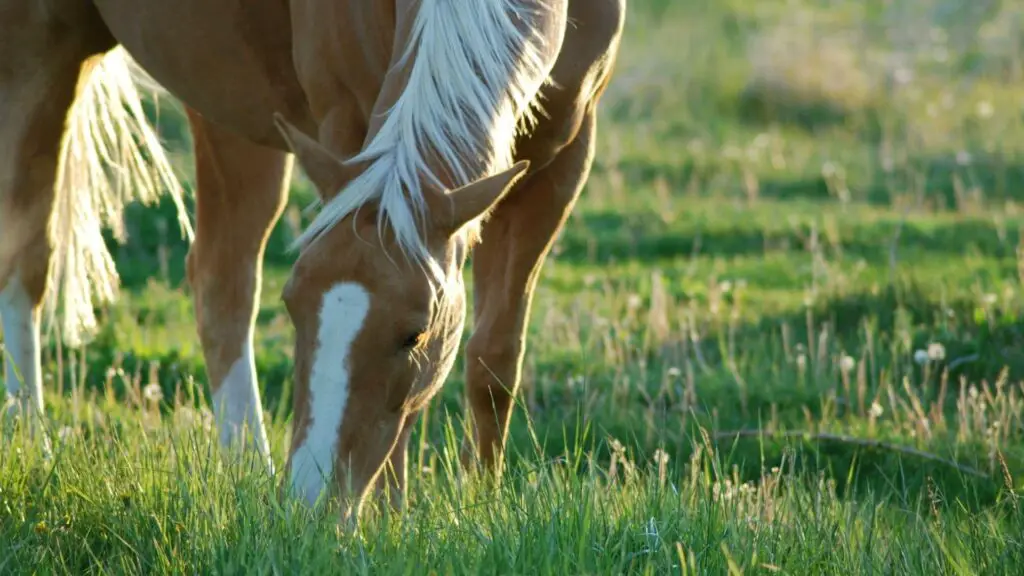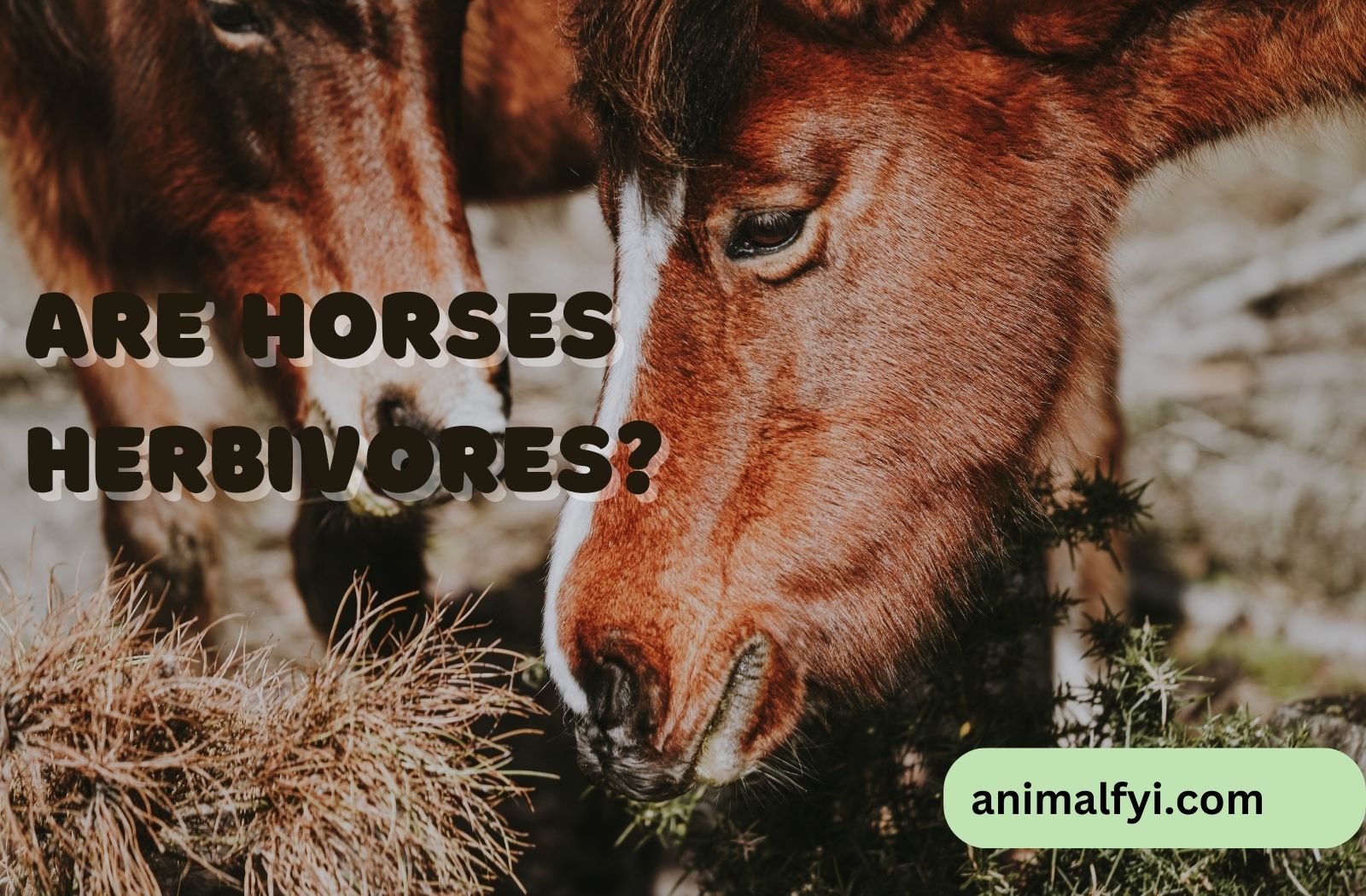When it comes to the eating habits of horses, one might wonder, “Are horses herbivores?” In this article, we will delve into the fascinating world of these majestic creatures and explore their dietary preferences. Understanding whether horses are herbivores is crucial for their overall well-being and proper care. Let’s uncover the truth about horses’ eating habits and shed light on their plant-based diet.
Understanding Herbivores
Herbivores are animals whose primary diet consists of plant-based foods. Horses fall into this category, along with numerous other species in the animal kingdom. As herbivores, horses have evolved specific characteristics and adaptations that allow them to thrive on a plant-based diet. Unlike omnivores or carnivores, horses lack the anatomical features necessary for effectively eating and digesting meat.
The Natural Diet of Horses
To truly grasp the essence of a horse’s dietary needs, we must consider their natural habitat and history. Horses, in their wild state, were herbivores that roamed vast grasslands, consuming primarily plant material. Over time, horses have developed a specialized digestive system that enables them to efficiently extract nutrients from plant matter. Their long, strong teeth are ideal for grinding tough grass and hay, and their large intestines facilitate the breakdown and absorption of nutrients from plant-based foods.
Dietary Requirements of Horses
Horses have specific nutritional needs to maintain optimal health and performance. Their diet should consist primarily of forage, such as grass and hay, which provide essential carbohydrates, proteins, and fats. Additionally, horses require a balanced intake of vitamins and minerals to support various bodily functions. While horses can consume some plant-based concentrates, their diet should predominantly rely on high-quality forage.
Feeding Horses
Proper feeding practices are vital to ensure a horse’s well-being. Caretakers should select the right forage, considering factors such as nutritional content and potential contaminants. Evaluating pasture quality and implementing grazing management techniques are essential to prevent overgrazing and nutrient depletion. Supplementary feeding may be necessary in certain situations, but it should be done under professional guidance to avoid imbalances or deficiencies. Finally, establishing a consistent feeding schedule and monitoring portion sizes help maintain a horse’s weight and digestive health.
Common Misconceptions about Horse Diets
Unfortunately, misconceptions about horse diets abound. One common myth is that horses can eat meat or are omnivores. In reality, their digestive system is specifically designed to process plant material, and their physiology does not support the consumption of meat. It’s crucial to dispel these misconceptions to prevent potential harm caused by improper feeding practices.
Health and Well-being of Horses
A horse’s diet directly impacts its overall health and well-being. Proper nutrition plays a significant role in preventing common health issues, such as digestive disorders or metabolic imbalances. Regular dental care, including teeth floating to maintain proper chewing, is essential for horses to effectively process plant-based foods. By prioritizing a balanced and appropriate diet, caretakers can ensure the longevity and vitality of their equine companions.
Consulting a Professional
When in doubt about a horse’s dietary needs, it’s essential to consult a veterinarian or equine nutritionist. These professionals have the expertise to evaluate a horse’s specific requirements and provide tailored recommendations. Seeking professional guidance ensures that the horse receives an individualized feeding plan that optimizes its health and performance.
Is a Horse a Herbivore or Omnivore?
Horses are unequivocally herbivores. They fall under the category of herbivorous animals, which means their primary diet consists of plant-based foods. Unlike omnivores, which can consume both plant and animal matter, horses lack the anatomical adaptations and digestive capabilities necessary to effectively process and utilize meat as a source of nutrition.
Will Horses Eat Meat?
No, horses do not eat meat. Their natural dietary inclination and physiological structure make them ill-suited for consuming meat. Horses have evolved over thousands of years to thrive on a plant-based diet, specifically focusing on grazing grasses and consuming plant material. Their digestive system, teeth, and large intestines are all tailored to efficiently process and extract nutrients from plant matter, while their taste preferences and instincts do not drive them to consume meat.
Are Horses Herbivores?

Yes, horses are herbivores. As herbivores, horses rely on a diet consisting predominantly of plant-based foods. Their ability to digest and derive sustenance from plant material is a key aspect of their biological makeup. From their evolutionary history to their anatomical adaptations, horses have developed as herbivores, specializing in processing and utilizing the nutrients present in grasses, hay, and other plant-based forage.
Do Horses Eat Meat and Plants?
No, horses do not eat meat. While they may occasionally exhibit curiosity towards non-plant items, such as nibbling on wood or other inedible objects, their diet does not include meat. Horses are herbivores by nature, and their digestive system is specifically designed to extract nutrients from plant material. Their teeth, which are adept at grinding down tough grasses and hay, further support their herbivorous diet. The notion of horses consuming meat is a misconception that should be dispelled to ensure their well-being and proper feeding practices.
Read: Can Horses Eat Strawberries?
Read: Is a Horse a Pet or Livestock?
Read: Mount Easier with These Tips for Getting on a Horse
Conclusion
In conclusion, horses are unquestionably herbivores. Their evolution, anatomy, and digestive system are all optimized for a plant-based diet. Understanding and meeting a horse’s dietary requirements are fundamental for responsible horse care. By providing high-quality forage, avoiding misconceptions about their diet, and seeking professional advice when needed, caretakers can ensure that horses live healthy, happy lives. So, the next time you ponder, “Are horses herbivores?” remember that these magnificent creatures are indeed herbivores, dependent on the nourishment of plant-based foods.

